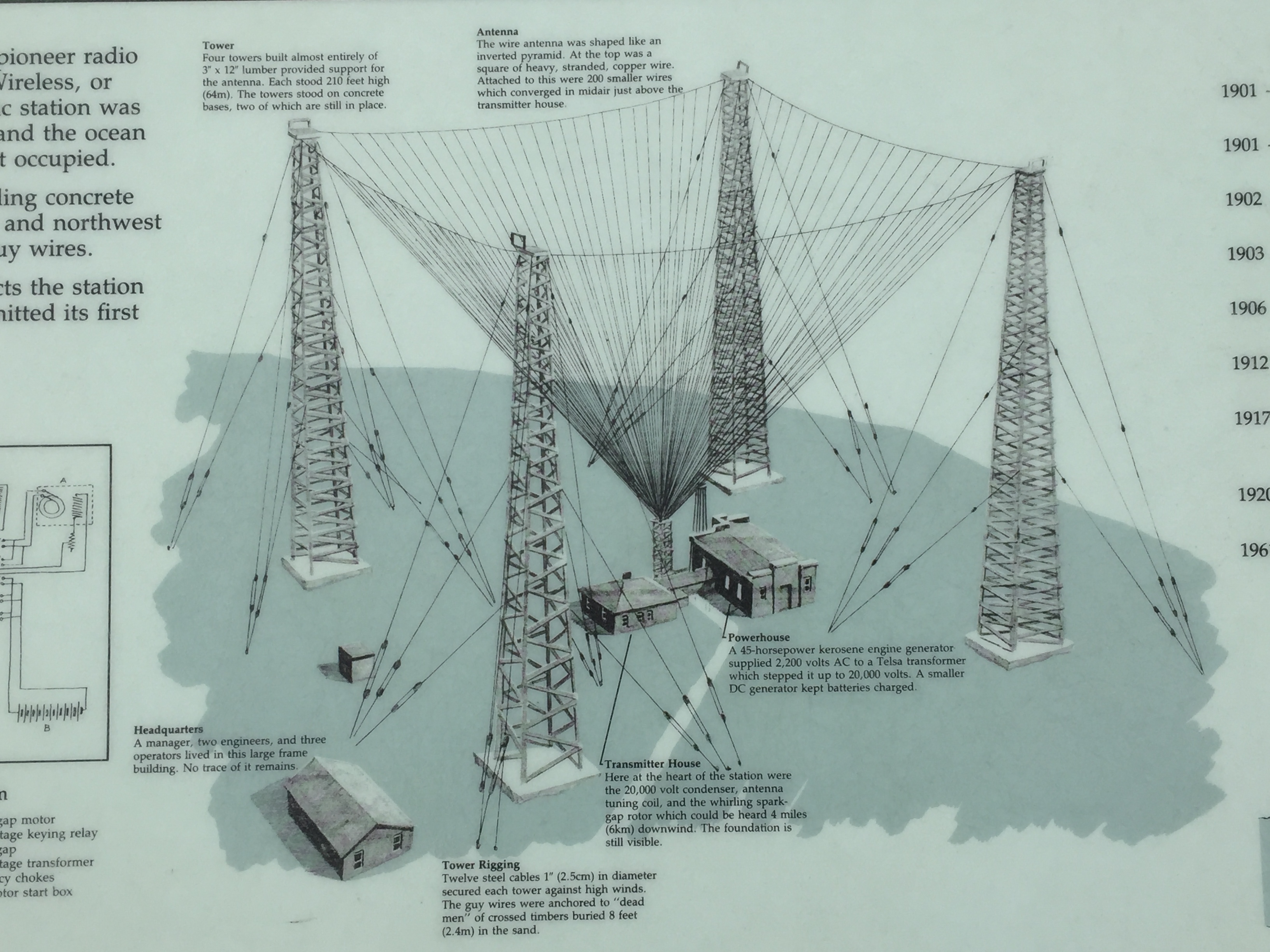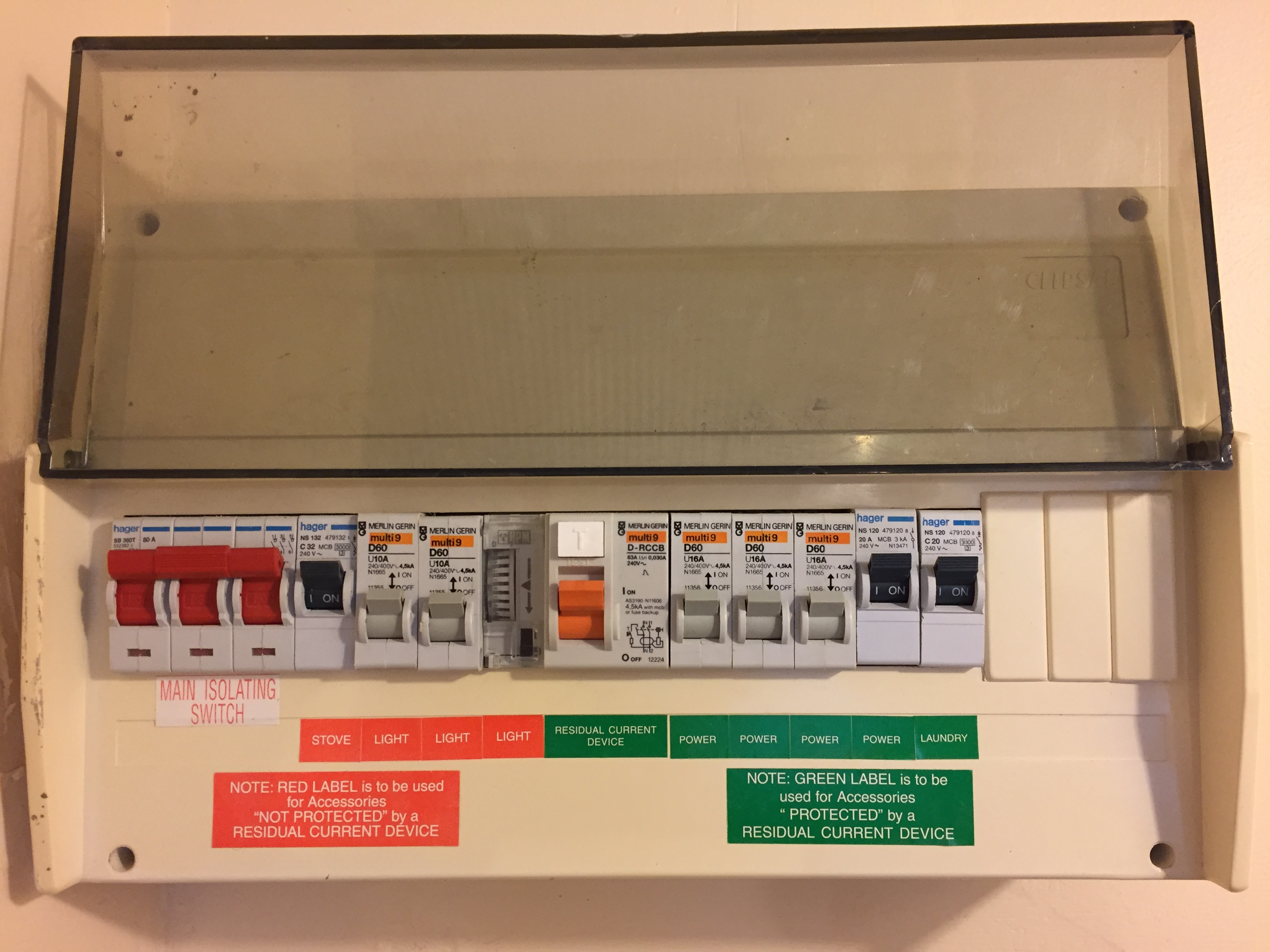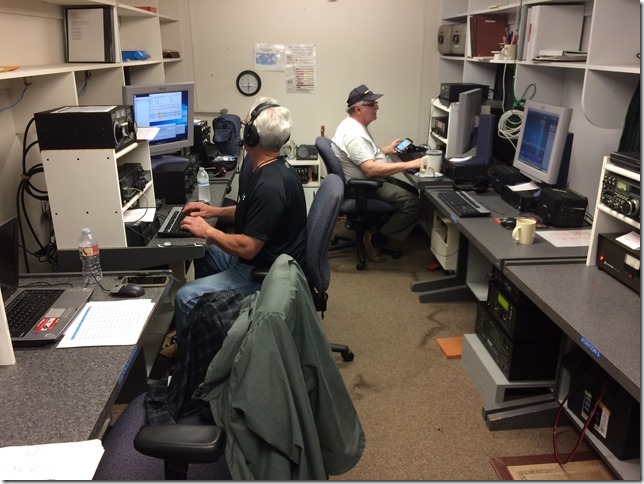 June 28, 2017 Editor: Paul Bourque, N1SFE | ||||
IN THIS ISSUE
With the RAC Canada Day Contest coming up July 1, look for a lot of activity from our northern neighbor. Phone and CW are both allowed, and remember that Canada Amateurs have different frequency allocations on some bands for phone - you're going to have to pay special attention to the frequency before you respond to a Phone CQ. Some VEs may be using special prefixes for their calls, in celebration of Canada's 150th birthday. Complete information for all contests follows the Conversation section 28 Jun - 10 Jul 2017 June 28 June 29 June 30 July 1
July 2 July 3 July 4 July 5 July 6 July 7 July 8 July 9 July 10 The IARU HF Contest will take place on July 8 and 9. Many country headquarter stations will be active, and Bob, N6TV, and Joe, OZ0J, have compiled the initial list for N1MM, Writelog, and Win-Test logging programs (zip file). If you have updates for the list, please send them to Joe.
The possibility of a computer mouse running out of power in the middle of a computer game is enough to hinder adoption of wireless mice. Logitech has developed a charging mouse pad to alleviate that particular concern. It's only 2 millimeters thick, and uses electromagnetic resonance as the method of power transfer. The pad is said to be initially compatible with two Logitech mice models, and is set for release in August. (Dennis, N6KI) Home Depot sells some 2m/440 dual band antennas and other antenna accessories... through their website. According to their website, orders can be picked up with no shipping costs if they're delivered to your local Home Depot, or shipped with a minimum order of $45. (via LVRAC ) The Mid-Atlantic States VHF Conference is scheduled for October 6-8, 2017, in Bensalem, Pennsylvania, and includes a number of sessions related to VHF/UHF contesting, including automation and rover operation. See the conference website for more information. Flying a drone to inspect your tower and antennas could eliminate the need for a climb. For non-commercial uses, a drone operator generally does not need to be licensed, but using a drone for the business of tower inspections does require operator licensing. Here's an article that details what one person did to become licensed as a commercial drone operator, and how they're using a drone for commercial broadcast tower inspections. Drone aircraft used by hobbyists require registration, but that may change in the future as a result of a court case decided in May, 2017. The FAA's website still states a requirement for drone registration, and according to an article by model aircraft enthusiasts, the FAA may be considering an appeal. There may be more Amateur Radio operators in Cuba soon. According to an IARU Region 2 news article, the Communications Ministry and Federación de Radioaficionados de Cuba (FRC) has called for examinations to be held on July 22. The examinations are held twice a year, where applicants must demonstrate competence in theory and practice. Cuba has over ten thousand licensed Amateur Radio operators. Reservations at the Crowne Plaza Hotel in Dayton, Ohio for the 2018 Contest University can be made starting June 27, 2017. Use group code NTH. Non-ionizing Radiation Electromagnetic radiation that does not have sufficient energy to displace electrons from their atoms. Radio Frequency (RF) radiation is non-ionizing.
Dr. Tamitha Skov was interviewed by Tim, K3LR, during the 2017 Contest University. The interview covers her career path that led to her current status as the "Space Weather Woman." Presentations and videos from the 2017 Contest University, held in Dayton, Ohio, are now available. The presentation entitled "Bouvet Island 2018" given by Nodir, EY8MM, at the 2017 Topband Dinner is available on the Topband Dinner website. (Tim, K3LR, via Topband Reflector) W0W was active in the Missouri QSO Party, and their video documents the multi-station setup, including antennas, operators, network, logging software setup. Operators included KE0HXL, N0SSC, K0KEV, WX5CW, WT2P and N0KTK. They were set up on the junction of three county lines. In this YouTube video, R4WBF can be seen working a bunch of stations in the CW WPX contest at a CW speed of something over 40 words per minute. As contest videos go, this one would be pretty standard, except that then you realize that R4WBF is just 9 years old. (Ward, N0AX)
Many stations announced and documented their ARRL Field Day operations using the Twitter hashtag #ARRLFD. The WRTC 2018 folks were testing the various German station locations and equipment during Field Day weekend, too. Looking at some of the preliminary reports, conditions were better than 2016, and for some big stations it was a excellent, perhaps record, year for contacts. Check out this media coverage from the Baltimore Sun. WQ6X described operating in the All-Asian CW Contest in a recent blog entry. It captures the essence of operating in a contest where working U.S. stations is not the primary focus. Line scores for the 2017 ARRL DX CW and Phone Contests are now available on the ARRL website. With the Summer Stew Perry Top Band Distance Challenge just completed a week ago, preliminary scores can be found on the Stew website. Logs are still being accepted until July 3 at tbdc@contesting.com. Logging ALL of the Contact Information It's good practice to log all pertinent information with your contacts, and ensure that information is also included when uploading to LOTW. Many HF operators collect counties, while VHF/UHF operators are interested in grid squares. When uploading logged contacts to LOTW, please make sure that this information is included with each contact, or make sure that your LOTW information includes your grid and county and that it's accurate for each contact. If you've already uploaded contacts to LOTW with incorrect information, you can correct it and upload those contacts again. See this document on fixing logs uploaded to LOTW. Older digital gear like RTTY demodulators can still be useful in certain situations, but it's getting harder to find computers that still include serial interfaces. Most laptops haven't had RS-232 serial interfaces for a number of years. USB to serial adapters are one option. Another is using an ESP8266 board to make a serial port available over your Wi-Fi network, so you can TELNET to your device. If you have an old terminal or computer you'd like to use to connect to the Internet, here's a solution that emulates a Hayes-compatible modem to connect via TELNET. The RTL-SDR website has published a spate of projects that have potential applicability for contesters. One project shows how to integrate data collected from aircraft beacon broadcasts (ADSB) so that it can be queried through an Amazon Echo device. As source code is provided, it's a stepping stone to being able to retrieve packet spot information by voice command. Meteor scatter mode users may appreciate another article detailing the detection of signal reflections using the waterfall of an SDR display. A new design for sound-diffusing panels like those used in performance spaces or studios, could achieve the same effect with just a fraction of the material. North Carolina State University did the research, which could ultimately result in sound diffusing panels being used in more applications than before. (Dennis, N6KI) Some new research on the Sun's coronal mass ejections (CMEs) indicates that they are cloud-like structures, subject to amorphous behavior. Previous models indicated CMEs were more bubble-like in their behavior. The new thinking means that it may be more difficult to model or predict CME influences such as the solar wind, and therefore harder to model threats to Earth. Commencement It's that time of year - school graduation. The contesting community has Contest University, Contest Academy, and number of contesting seminars as an adjunct to other events like hamfests and conventions, devoted to teaching aspects of the hobby. Imagine borrowing another aspect from learning institutions -- The Commencement speech: "Good afternoon, ladies and gentleman. You may not know me personally, but like all of you, in a contest my qualifications are my callsign, and my exchange. Our peers include everyman: farmer, technician, homemaker, captain of industry, King. I'm flattered to have been asked to address our group at this occasion of you having completed this phase of instruction in radio contesting. I say this phase, because after we have all learned in these sessions from the titans of our hobby, we realize that mastering our hobby is a never-ending quest. My task today is to point out some things that go beyond technique and practice. If you'll indulge me, I hope to inspire you to consider some issues that face our future. That we are gathered in this room, inspired to practice what some would judge an anachronistic and quaint art, is testament to your enthusiasm and passion. However, looking around you, consider who is not here, who is under-represented in our ranks. Our numbers will only increase and remain strong if we encourage younger people and those that do not look like the majority of those in this room to share our interest. You've met a number of people during your recent studies. Take advantage of those connections you've made, and consider honoring your instructors by becoming an instructor or mentor yourself. Our pursuit can always benefit from more Elmers. Every generation of contesters has faced the challenge of competing against those that bend or outright break the rules, and ours is no different. What is different today is the ability to gather evidence of undesirable behavior in time to confront cheaters. Our resolution against cheaters should be accurate, firm, and fair. Where there is genuine ignorance, we should educate. Where there is willful intent to cheat, we should take appropriate action to disqualify offenders and require demonstration of reform before allowing them to compete again. While you've learned techniques in your sessions that have been refined over time, remember that radio contesting is an evolving sport, and has evolved greatly from what it was just a few years ago. If an explanation given for a technique includes the phrase "We do it that way because it's always been done like that" then that technique should not be a 'best practice'. After you leave here, and when you contest, keep in mind how you can address some of these issues. Consider bringing some of your new knowledge back to your radio club, and sharing it with other members. Inspire others to try contesting by communicating your enthusiasm. Follow your own particular path in contesting by trying new modes, new categories, or new techniques. You don't have to like everything, but be continue to try new things, and keep learning. To have a chance at that top 10 box, you're going to have to work hard and enter a lot of contests. Be mindful of your manners, and be a grown up on the radio. Don't be tempted to trade your integrity and reputation for a hollow and temporary "victory" by cheating. Congratulations to this 2017 Class of Contesters. Get on the air, shake things up, invent or improve something, have fun, and see you in the contest." That's all for this time. Remember to send contesting related stories, book reviews, tips, techniques, press releases, errata, schematics, club information, pictures, stories, blog links, and predictions to contest-update@arrl.org 73, Brian N9ADG 28 Jun - 10 Jul 2017 An expanded, downloadable version of QST's Contest Corral in PDF format is available. Check the sponsor's Web site for information on operating time restrictions and other instructions. HF CONTESTS SKCC Sprint, Jun 28, 0000z to Jun 28, 0200z; CW; Bands: 160, 80, 40, 20, 15, 10m; RST + (state/province/country) + Name + (SKCC No./power); Logs due: June 30. VHF+ CONTESTS See RAC Canada Day Contest and SKCC Weekend Sprintathon, above. 28 Jun - 10 Jul June 30, 2017 July 1, 2017 July 2, 2017 July 3, 2017 July 4, 2017 July 5, 2017 July 9, 2017 July 10, 2017 ARRL Information Click here to advertise in this newsletter, space subject to availability. Your One-Stop Resource for Amateur Radio News and Information ARRL membership includes QST, Amateur Radio's most popular and informative journal, delivered to your mailbox each month. Subscribe to NCJ - the National Contest Journal. Published bimonthly, features articles by top contesters, letters, hints, statistics, scores, NA Sprint and QSO Parties. Subscribe to QEX - A Forum for Communications Experimenters. Published bimonthly, features technical articles, construction projects, columns and other items of interest to radio amateurs and communications professionals. Free of charge to ARRL members: Subscribe to The ARRL Letter (weekly digest of news and information), the ARES E-Letter (monthly public service and emergency communications news), Division and Section news -- and much more! ARRL offers a wide array of products to enhance your enjoyment of Amateur Radio. Visit the site often for new publications, specials and sales. Donate to the fund of your choice -- support programs not funded by member dues! Reprint permission can be obtained by sending email to permission@arrl.org with a description of the material and the reprint publication. ACKNOWLEDGEMENTS ARRL Contest Update wishes to acknowledge information from WA7BNM's Contest Calendar and SM3CER's Contest Calendar. | ||||









